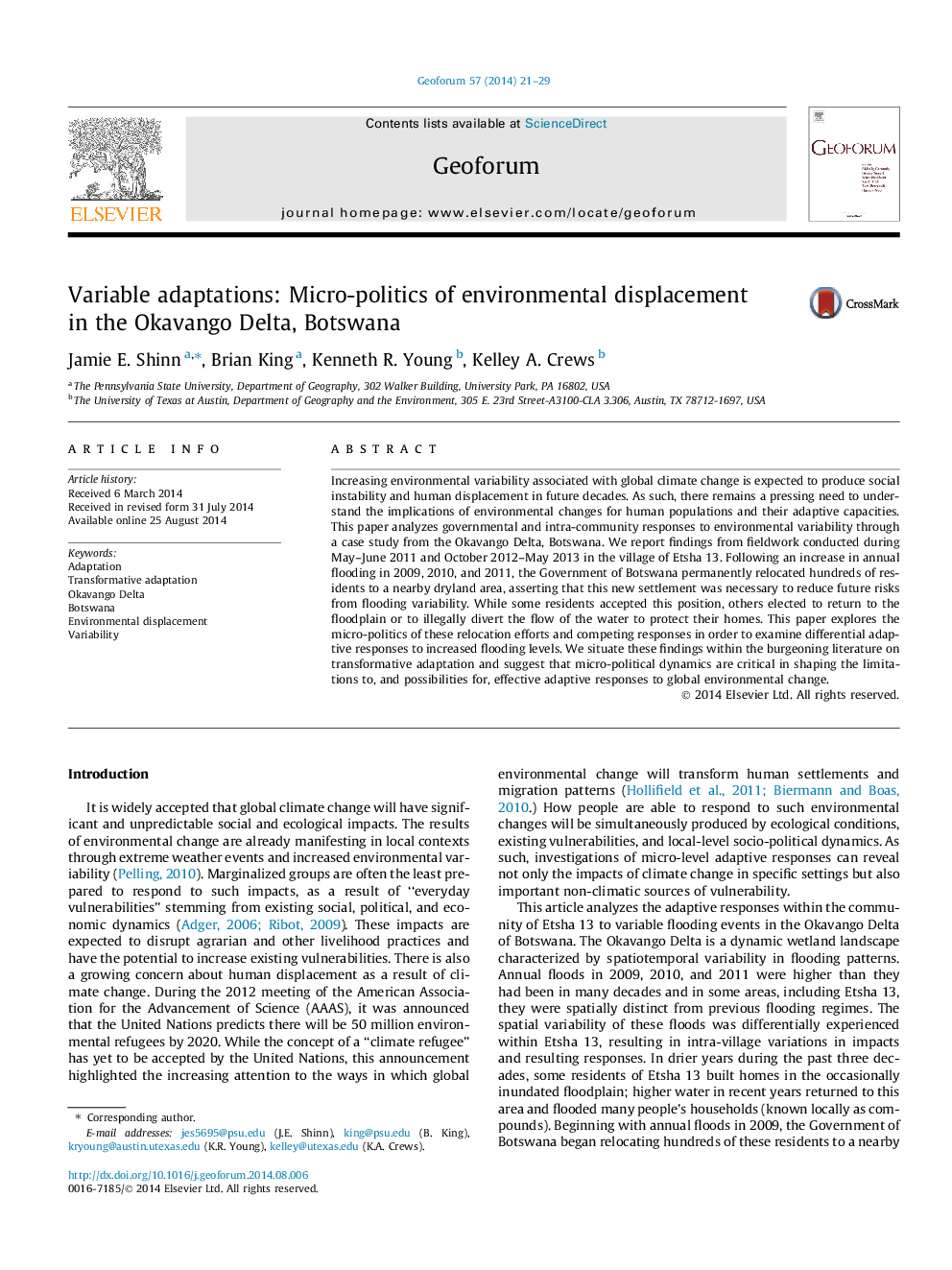| Article ID | Journal | Published Year | Pages | File Type |
|---|---|---|---|---|
| 5073933 | Geoforum | 2014 | 9 Pages |
•We examine differential impacts of flooding in a village of the Okavango Delta.•We examine the micro-politics of competing responses to flooding variability.•Responses to environmental change are produced by social and ecological processes.•Micro-political dynamics are critical in shaping effective adaptive responses.•Transformative adaptation efforts will be difficult due to existing power dynamics.
Increasing environmental variability associated with global climate change is expected to produce social instability and human displacement in future decades. As such, there remains a pressing need to understand the implications of environmental changes for human populations and their adaptive capacities. This paper analyzes governmental and intra-community responses to environmental variability through a case study from the Okavango Delta, Botswana. We report findings from fieldwork conducted during May–June 2011 and October 2012–May 2013 in the village of Etsha 13. Following an increase in annual flooding in 2009, 2010, and 2011, the Government of Botswana permanently relocated hundreds of residents to a nearby dryland area, asserting that this new settlement was necessary to reduce future risks from flooding variability. While some residents accepted this position, others elected to return to the floodplain or to illegally divert the flow of the water to protect their homes. This paper explores the micro-politics of these relocation efforts and competing responses in order to examine differential adaptive responses to increased flooding levels. We situate these findings within the burgeoning literature on transformative adaptation and suggest that micro-political dynamics are critical in shaping the limitations to, and possibilities for, effective adaptive responses to global environmental change.
